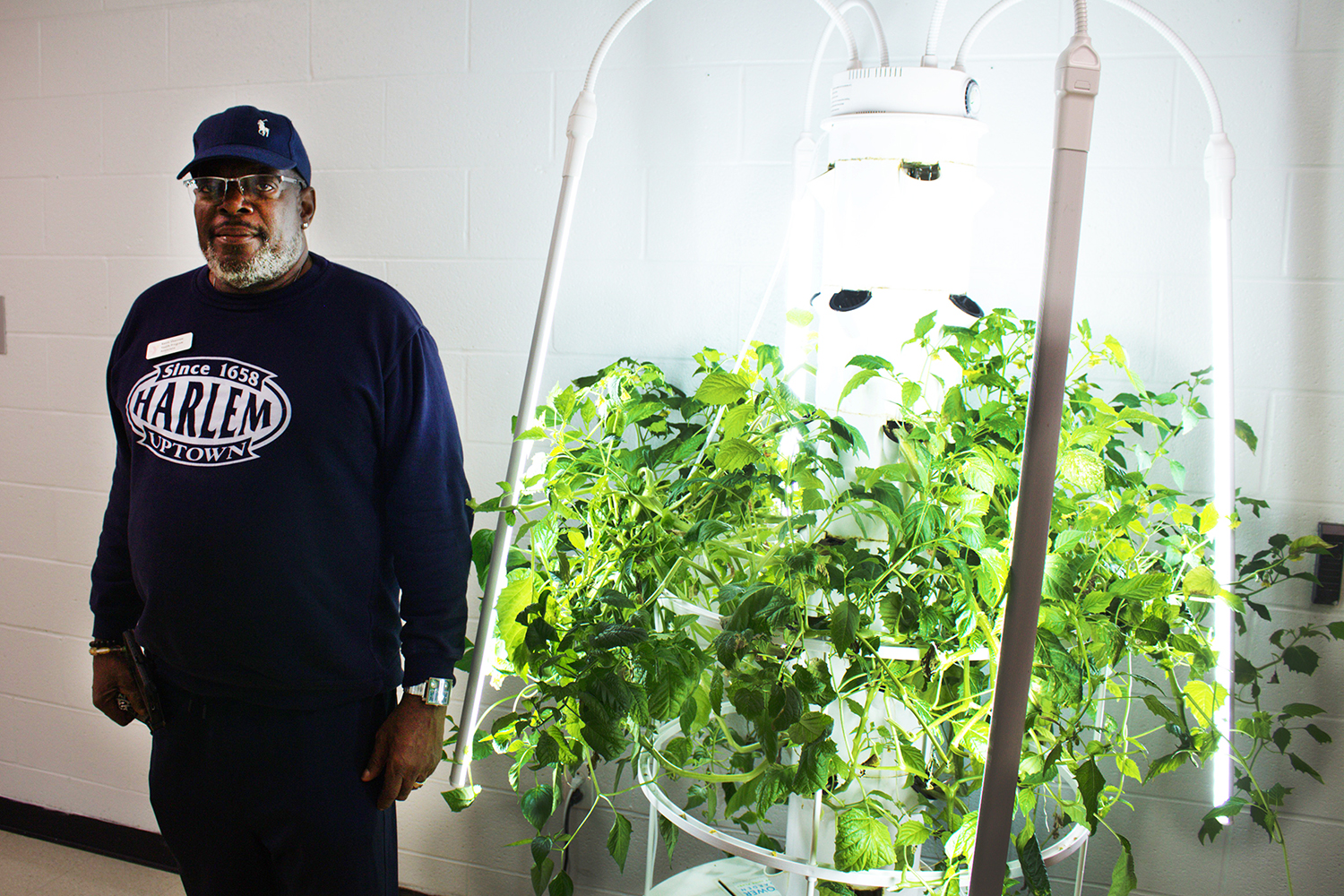When his 76-year-old mother Jean wandered away from home one day, W. Brewster Earle ’80 (CLAS) knew it was time to get help. But entering the maze of Medicare seemed overwhelming.
“All of a sudden having to get immersed in it was daunting,” says Earle. He found the assistance his mother needed through UConn’s Center on Aging, part of the UConn Health Center, where specialists diagnosed his mother with dementia and quickly connected the family with 24-hour at-home care.

Earle says that Michael Isaac, a geriatrics fellow at the Center on Aging who treated his mother, often scheduled Jean as his last appointment of the day to take extra time with her.
“Dr. Isaac has exhibited extraordinary compassion as well as follow-up to my Mom’s case,” says Earle. “His obvious caring about my mother the person, and his availability to help at any time, has been refreshing.”
Like Earle, many other caregivers will be seeking help for a family member in need of geriatric care. With the first wave of baby boomers beginning to turn 65 next year, the number of Americans aged 65 and older is estimated to nearly double in the next 20 years. Yet currently fewer than 1 percent of all physicians in the country are certified in geriatrics, according to Gail Sullivan, a professor at the UConn School of Medicine and associate director for education at the Center on Aging.
The American Geriatrics Society predicts that the existing shortfall will only worsen, with about one geriatrician for every 7,665 older Americans by the year 2030.
Ranking among the ‘oldest’ states is Connecticut, which the U.S. Census Bureau anticipates will have the nation’s ninth highest percentage of population aged 65 and older in 2010, making the demand on health care services across the state even greater in coming years.
With its multifaceted mission – to provide clinical care for older adults; to educate the next generation of leaders in geriatrics; and to carry out research to improve older adults’ independence, function, and quality of life – the UConn Center on Aging plays a crucial role in addressing such challenges.
“Aging isn’t a field where being multidisciplinary seems merely desirable and cutting-edge … When it comes to the care of older adults, it’s essential,” says Professor George Kuchel, director of the UConn Center on Aging. Kuchel is also Citicorp Chair in Geriatrics and Gerontology and chief of the Division of Geriatric Medicine at the UConn Health Center.
Quality, Not Quantity
Caring for older patients poses special challenges: While most remain quite healthy and independent, many others are at great risk of falling, developing dementia, and experiencing depression and anxiety. More than three-quarters develop at least one chronic medical condition – such as arthritis or diabetes – that requires ongoing care, according to the Institute of Medicine. Often, these health issues affect older adults’ ability to care for themselves on a day-to-day basis, from bathing and getting dressed to driving and taking medications.
“We’re particularly interested in helping our patients remain as independent as possible,” says professor of family medicine Patrick Coll, associate director for the Center’s clinical programs. “We’re emphasizing good nutrition, exercise, and social supports so that the person has a better quality of life, not just quantity of life.”
In seeking to help older adults delay disability and maintain their autonomy over time, the Center on Aging provides elders with healthy aging advice related to nutrition and disease prevention. Outreach programs like Powerful Aging, an exercise series designed to improve strength, endurance, mobility, and coordination in older adults, teach the benefits of an active lifestyle. Supported by an externally funded research portfolio that exceeds $30 million, the Center also conducts a diverse range of clinical, laboratory, and community-based research efforts, all ultimately intended to help older people function independently. Studies touch on such aging issues as mobility, frailty, dementia care, and incontinence, as well as hearing loss and stroke prevention.
Earlier this year, Kuchel brought a group of interdisciplinary researchers together to focus on these issues with the Center’s first university-wide Aging Research Day. The Center’s next annual Aging Research Day in April 2011 will focus on “Improving Clinical Outcomes in Older Adults Through Research.”
The Center’s clinical programs include outpatient primary care clinics and geriatric hospitalist services to assure individualized care for older patients who are admitted to the Health Center’s John Dempsey Hospital. In addition, the Health Center has specialty care clinics that address specific clinical conditions, such as dementia. For instance, Coll leads the James E.C. Walker, MD, Memory Assessment Program, which diagnoses and treats memory problems in older adults like Earle’s mother while offering guidance to family caregivers.

Memory disorders are common among the Center’s patients, whose average age is 83. For those with memory problems, Coll says, geriatricians are interested in determining how these disorders affect patients’ function.
“For someone who lives alone, what do they do for grocery shopping? Are they doing their own bills? Taking care of their own finances? Driving a car? Are they taking their medications safely? Geriatrics emphasizes these questions as part of the training,” he says.
Coll himself received his training in geriatrics at UConn, as the first fellow in the Center’s nationally known Geriatric Medicine Fellowship Program, which recruits physicians like Jean Earle’s doctor, Michael Isaac, who have already specialized in internal or family medicine and have interest in seeking advanced geriatrics training.
With nearly 90 graduates of the fellowship program going on to serve as leaders in administrative, education, program development, and research roles in the field of geriatrics in Connecticut, nationally, and internationally (including Iceland and the Philippines), Coll emphasizes that the Center’s mission goes beyond preparing physicians and other health care providers in geriatric patient care to giving the leadership skills they need to “make a bigger impact … working with organizations, teaching, and doing research.”
Raising the Bar
As the aged population grows, the need for such leaders will likely escalate, along with the need for long-term care services. In Connecticut, costs for long-term care already surpass $2 billion annually, representing the second-largest single item in the state budget, after education.
“With the proper service coordination, people at the same disability level as someone living in a nursing home could be cared for in a home or community setting at a lower expense,” says Richard Fortinsky, professor of medicine, Physicians Health Services Endowed Chair in Geriatrics and Gerontology, and associate director for health outcomes research at the Center, whose own studies target Alzheimer’s disease and dementia care, as well as the experiences of family caregivers. “So we’re trying to lower that $2 billion-a-year price tag.”
With its quarter-century anniversary drawing near, the UConn Center on Aging continues to work collaboratively, growing its national profile, the depth of its programs, and its funding.
“We’re committed to a multidisciplinary approach which engages faculty members and trainees from across the University in working together with our many community partners in improving the lives of older adults through clinical care, education, and research,” Kuchel says.
W. Brewster Earle says he is comforted to know that UConn is training the kind of health providers he may need himself one day: “As the health care industry gets a bad rap as impersonal bureaucracy, it is great to see caring people like Dr. Isaac enter the profession. He will raise the bar. ”
For more information on the UConn Center on Aging, call 860-679-3956 or visit the center’s website.


